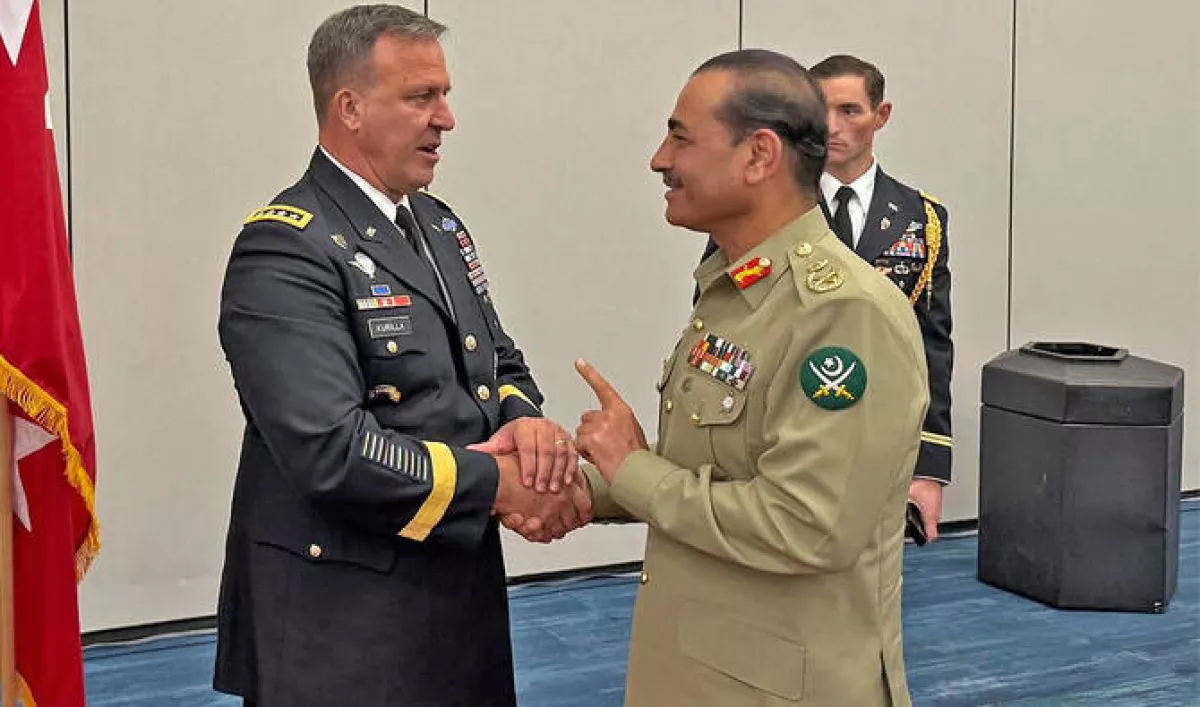Pakistan's invaluable role in the West's fight against ISKP terrorism
Pakistani-US relations have transformed significantly in recent years, driven by cooperation on defence and counterterrorism. While US officials accused Pakistan of covertly "aiding" the Afghan Taliban and sheltering Osama bin Laden at the turn of the millennium, today the Pentagon praises Pakistan for its “phenomenal” efforts against terrorist groups in the region.
In June 2025, then-head of US Central Command (CENTCOM) General Michael Kurilla praised Pakistan’s military for capturing “at least five ISIS-Khorasan (ISIS-K)” operatives using US-supplied intelligence, calling Pakistan a “phenomenal partner” and advocating for stronger ties. His comments came just weeks after a brief but intense confrontation between Pakistan and America’s traditional ally, India — a relationship now on different terms following complex trade negotiations.
What explains this change? According to an article published by The Economist, the answer lies in the lawless borderlands of Pakistan and Afghanistan, now the main base for Islamic State Khorasan Province (ISKP, also sometimes called ISIS-K), a faction born from the group that declared a “caliphate” in Iraq and Syria in 2014. The US and its allies now view ISKP as the most dangerous global terror threat. This concern, the article notes, partly explains why Western governments have started quietly engaging with the Taliban government in Afghanistan.
At their urging, Pakistan has intensified efforts to target ISKP leaders. Among those captured was the alleged mastermind of the Kabul suicide bombing that killed 13 US troops and about 170 civilians in August 2021. Pakistan detained him in February and extradited him in March, earning rare praise from President Donald Trump. That move also secured Pakistan’s army chief, Field Marshal Asim Munir, an invitation to a White House lunch in June—just over a month after the India skirmish—and a second US visit shortly after.

ISKP remains formidable, with 4,000-6,000 fighters, which includes Tajiks, Uzbeks, and Turks in its ranks, operating mainly in eastern Afghanistan and Pakistan’s north and southwest, according to counterterrorism officials. The group is seen as highly dangerous because it attracts seasoned militants and recruits aggressively online, often inspiring lone-wolf attacks abroad. Despite pressure from Afghan and Pakistani forces, it “retains the capability and intent to attack Western interests abroad with little to no warning,” General Kurilla warned the US Congress in June.
Pakistan's domestic interests
But before relations between Islamabad and Washington can further deepen, Pakistan has its own conditions tied to internal security.
Islamabad, the article explains, is less concerned about ISKP than the West, since the group—aligned with the puritanical Salafist branch of Sunni Islam—mainly targets Shia Muslims (including in Iran) and Western or Russian interests, such as in the 2024 Crocus City Hall terrorist attack in Moscow. Pakistan’s priority is groups threatening its sovereignty: separatists and Islamist insurgents pushing for sharia law. It particularly seeks US backing against Tehreek-e-Taliban Pakistan (TTP) in the north and separatists in the Balochistan province. The article cites figures that show that terrorist attacks killed 1,081 Pakistanis in 2024, which marks a 45% jump from the previous year alone.
Pakistan also wants the US to help recover weapons left behind after its 2021 Afghan withdrawal. Military spokesman Lieutenant General Ahmed Sharif Chaudhry suggests Washington should buy them back on Afghanistan’s black market to keep them from insurgents. “Everything is available to the highest bidder” in Afghanistan, he notes.
Islamabad further seeks expanded US intelligence sharing and the resumption of arms supplies to combat militants. US officials may agree to provide equipment like mine-resistant vehicles and night-vision goggles, which they argue would not shift the military balance with India. However, as The Economist notes, India—now a major US defence customer—would strongly oppose any such move.
However, according to the article a tougher demand looms which proves to be more complicated for the West: Pakistan wants them to acknowledge its claims that India supports the TTP and Baloch separatists. Islamabad has presented what it says is new evidence and expects Western pressure on New Delhi to stop the alleged backing. So far, officials remain unconvinced and have not issued a formal response.
Despite this, Pakistan shows no signs of reducing cooperation against ISKP. Field Marshal Munir sees this partnership as vital to strengthening ties with the Trump administration. ISKP, meanwhile, is not only a Western concern: Russia considers it a severe threat after misjudging its risk before the Crocus City Hall attack, which killed at least 137 people, with China and Iran sharing such concerns.
By Nazrin Sadigova








